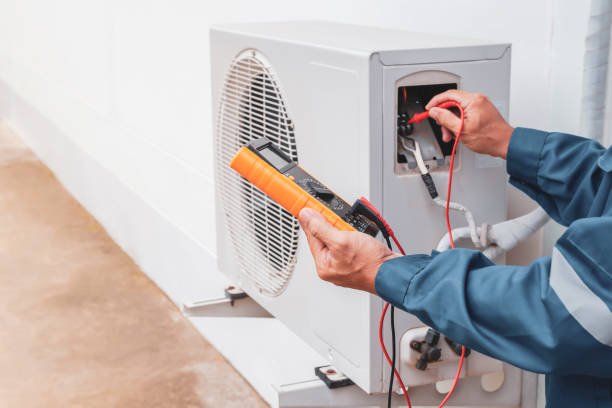Understanding the Lifespan of Your HVAC Unit: How Long Can You Expect It to Last?
Introduction
In the sweltering Visit this link heat of Chaparral, NM, having a reliable HVAC system is not just a luxury; it’s a necessity. But how long can you expect that vital piece of equipment to last? Understanding the lifespan of your HVAC unit is crucial for budgeting, maintenance planning, and ensuring comfort in your home. In this extensive article, we will explore the factors that influence HVAC longevity, common misconceptions about unit lifespan, and tips for extending the life of your heating and cooling systems. Let’s dive deep into understanding the lifespan of your HVAC unit and what you can do to maximize its efficiency.
Understanding the Lifespan of Your HVAC Unit: How Long Can You Expect It to Last?
The average lifespan of an HVAC unit varies significantly depending on several factors such as type, brand, usage, and maintenance practices. Generally speaking:
- Air Conditioners: Typically last between 12 to 15 years.
- Furnaces: Can last anywhere from 15 to 30 years.
- Heat Pumps: Usually have a lifespan of around 10 to 15 years.
These figures can fluctuate based on conditions in Chaparral, NM, where weather extremes can put additional stress on your system.
Factors Affecting HVAC Lifespan
Quality of Installation
A poorly installed system can lead to various problems that shorten its lifespan. Proper installation ensures optimal performance and efficiency.
Type of System
Different types of HVAC units come with varying lifespans due to their design and complexity. For instance:
- Central air conditioning units may not last as long as geothermal systems.
Usage Patterns
How often you run your HVAC system plays a significant role in its longevity. Units that are overworked or operated inefficiently will wear out faster.

Regular Maintenance Practices
Regular servicing is essential for keeping your HVAC running smoothly. Here are some maintenance tips:
- Change air filters every 1-3 months.
- Schedule annual professional inspections.
- Clean ducts regularly.
Environmental Factors
Living in Chaparral means facing unique environmental challenges such as dust storms or high humidity levels which could impact your system's performance.

Common Misconceptions About HVAC Lifespan
Misconception #1: All Units Last the Same Time
Many homeowners believe all types of HVAC systems will last similarly. However, each has its unique set of characteristics affecting longevity.
Misconception #2: Once Installed, No Maintenance Is Needed
Some individuals think after installation they don’t need to worry about their units until something goes wrong. This couldn’t be further from the truth!
Misconception #3: Higher Cost Equals Longer Life
While premium models might offer better features or efficiency ratings, it doesn’t always mean they will outlast budget options.
Tips for Extending Your HVAC Unit's Lifespan
1. Regular Filter Changes
Changing air filters regularly ensures that airflow remains steady and keeps dust and allergens at bay.
2. Professional Inspections Annually
Having a professional inspect your system annually helps catch potential issues before they escalate into costly repairs or replacements.
3. Thermostat Management
Investing in a programmable thermostat can optimize energy usage without overworking your unit.
4. Seal Ductwork Properly
Leaky ducts can waste energy and force your unit to work harder than necessary, reducing its overall lifespan.
Understanding Different Types of HVAC Systems in Chaparral NM
Central Air Conditioning Systems
Central AC systems are prevalent in many homes across Chaparral due to their efficiency in cooling large spaces quickly.
Pros:
- Efficient cooling
- Quiet operation
Cons:
- Higher initial cost
- Requires ductwork
Heat Pumps
Heat pumps are versatile units used for both heating and cooling but usually have shorter lifespans compared to other systems.
Pros:
- Energy-efficient
- Dual functionality
Cons:
- Less effective in extremely cold temperatures
- Shorter lifespan (10 - 15 years)
FAQ Section
1. What is the average lifespan of an HVAC unit?
The average lifespan typically ranges from 12 - 30 years depending on various factors including type and maintenance practices.
2. How do I know when my HVAC needs replacement?
Signs include frequent breakdowns, rising energy bills, inconsistent temperatures, or age exceeding manufacturer guidelines.
3. Does regular maintenance really extend an HVAC's life?
Yes! Regular maintenance not only extends longevity but also improves efficiency and prevents costly repairs down the line.
4. Are there specific brands known for longer-lasting units?
While many reputable brands exist like Trane and Carrier known for durability, proper maintenance ultimately determines longevity more than brand alone.
5. Can I perform my own maintenance on my HVAC?
While some tasks like changing filters are DIY-friendly, it's advisable to leave complex checks or repairs to professionals.
6. How does climate affect my system’s lifespan?
Extreme weather conditions can put added strain on your unit leading it to wear out faster compared to milder climates.
Conclusion
Understanding the lifespan of your HVAC unit is vital for ensuring comfort in your Chaparral NM home while effectively managing costs associated with repairs or replacements. By recognizing the factors influencing longevity—from installation quality to regular maintenance—you empower yourself with knowledge that fosters informed decisions regarding one of your home's most critical systems. Remember that by investing time into maintaining your unit now—whether through regular check-ups or simple care routines—you’re likely extending its life well beyond average expectations while enjoying all-year-round comfort!
